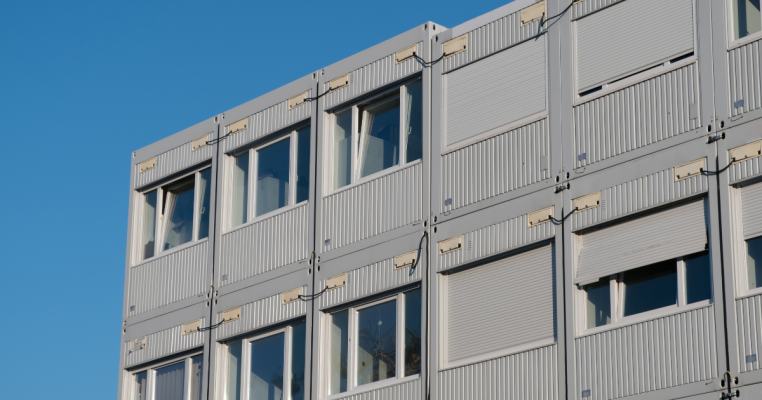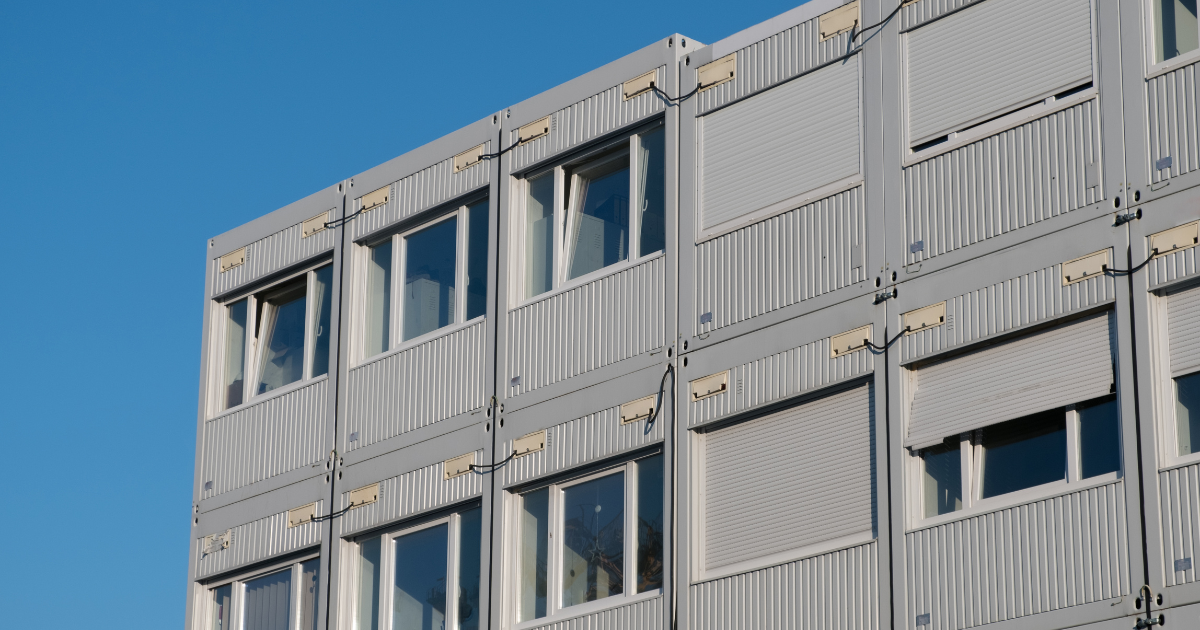As Melbourne grows as a hub for innovation and business, the demand for versatile and cost-effective workspaces is rising. Container offices have emerged as a popular solution, offering a unique blend of mobility, affordability, and sustainability. This blog explores the diverse applications of container offices in Melbourne, highlighting their benefits and providing insights into how businesses can leverage this innovative solution. Whether you’re a startup, a construction firm, or an event organizer, container offices offer a flexible and efficient way to meet your workspace needs.

Why Container Offices Are Ideal for Melbourne
1. Adaptable to Urban Environments
Melbourne’s bustling urban landscape requires innovative solutions to optimize space. Container offices are compact and adaptable, making them ideal for urban settings. Their small footprint allows them to fit into tight spaces, whether a rooftop, a parking lot, or a narrow plot of land. This adaptability is crucial in a city where real estate can be scarce and expensive.
2. Sustainable and Eco-Friendly
In a city known for its commitment to sustainability, container offices align perfectly with Melbourne’s green initiatives. These structures are often made from repurposed shipping containers, reducing the need for new construction materials and minimizing waste. Additionally, container offices can be outfitted with energy-efficient systems, solar panels, and eco-friendly insulation, making them a sustainable choice for environmentally conscious businesses.
3. Cost-effective and Scalable
One of the most significant advantages of container offices is their cost-effectiveness. Compared to traditional office buildings, container offices require lower upfront costs and have reduced operational expenses. This affordability makes them accessible to startups and small businesses with limited budgets. Moreover, container offices are scalable; businesses can easily add more units or modify existing ones as their needs evolve.
4. Mobility and Flexibility
Container offices are inherently mobile, allowing businesses to relocate them as needed. This flexibility is particularly beneficial for construction, events, and temporary retail industries, where workspaces must be adaptable and mobile. The ability to move offices quickly and efficiently means businesses can easily respond to changing market conditions and operational requirements.
Applications of Container Offices in Melbourne
1. Creative Workspaces for Startups and SMEs
Melbourne is known for its vibrant startup ecosystem and creative industries. Container offices provide an affordable and unique workspace option for startups and small-to-medium enterprises (SMEs). These offices can be customized to reflect a company’s brand and culture, creating an inspiring environment for employees. Additionally, the modular nature of container offices allows for easy expansion as the business grows.
2. On-Site Offices for Construction and Engineering Projects
The construction and engineering sectors often require on-site offices to manage projects and coordinate teams. Container offices offer a practical solution, providing a secure and functional workspace that can be easily transported to different job sites. These offices can be equipped with all the necessary amenities, including meeting rooms, workstations, and communication systems, ensuring smooth operations on-site.
3. Temporary Offices for Events and Festivals
Melbourne’s vibrant events and festivals scene creates a demand for temporary infrastructure. Container offices are perfect for event organizers, offering a flexible and secure space for administration, ticketing, and customer service. Their mobility allows quick setup and breakdown, making them ideal for short-term use. Additionally, container offices can be customized to fit the theme and branding of the event, enhancing the overall experience for attendees.
4. Pop-Up Retail and Hospitality Spaces
The trend of pop-up retail and hospitality spaces has gained traction in Melbourne. Container offices can be transformed into stylish and functional pop-up shops, cafes, or bars. Their compact size and modular design make them perfect for creating unique and memorable customer experiences. Whether a seasonal retail store or a temporary cafe at a festival, container offices offer a versatile solution for businesses looking to engage with customers in new and exciting ways.
5. Remote Workstations and Satellite Offices
As remote work becomes increasingly prevalent, businesses are exploring new ways to support their employees. Container offices can serve as remote or satellite workstations, providing a dedicated workspace away from the main office. This setup can enhance productivity and work-life balance for employees with inadequate workspace at home. Additionally, container offices can be strategically placed in various locations, allowing businesses to tap into new markets and talent pools.
Best Practices for Implementing Container Offices
1. Planning and Site Selection
Thorough planning and site selection are crucial before setting up a container office. Consider accessibility, security, and compliance with local zoning and building regulations. It’s also important to assess the site’s suitability for utilities like electricity, water, and internet connectivity.
2. Customisation and Interior Design
A container office’s interior design and layout play a significant role in creating a functional and comfortable workspace. Focus on maximizing the use of space and incorporating ergonomic furniture. Depending on the intended use, you may also want to include features such as meeting rooms, kitchenettes, and restrooms. Customisation options, such as branded exterior finishes and signage, can enhance the office’s visual appeal and professional image.
3. Ensuring Security and Compliance
Security and compliance are critical considerations for any workspace. Container offices should be equipped with secure locking systems and, if necessary, surveillance cameras. Ensure that the office complies with relevant safety regulations, including fire safety and accessibility standards. Regular inspections and maintenance are essential to keep the office in good condition and ensure the safety of its occupants.
4. Maintenance and Upkeep
Regular maintenance is key to preserving the functionality and appearance of a container office. This includes routine inspections of the structure, plumbing, electrical systems, and HVAC units. Address signs of wear and tear promptly to prevent more significant issues from developing. A well-maintained office ensures the safety and comfort of its occupants and extends the container’s lifespan.
Conclusion
Container offices offer a versatile and innovative solution for businesses in Melbourne. Their adaptability, cost-effectiveness, and sustainability make them ideal for various applications, from creative workspaces to on-site construction offices. As Melbourne continues to grow and evolve, container offices provide businesses with the flexibility and mobility needed to thrive in a dynamic market. Whether you’re a startup looking for an affordable office space or a construction firm needing a mobile workspace, container offices offer a practical and efficient solution.
Ready to explore the potential of container offices for your Melbourne business? Contact OSG Containers Australia today to discover our range of container office solutions. Our team is here to help you find the perfect workspace to meet your needs.



